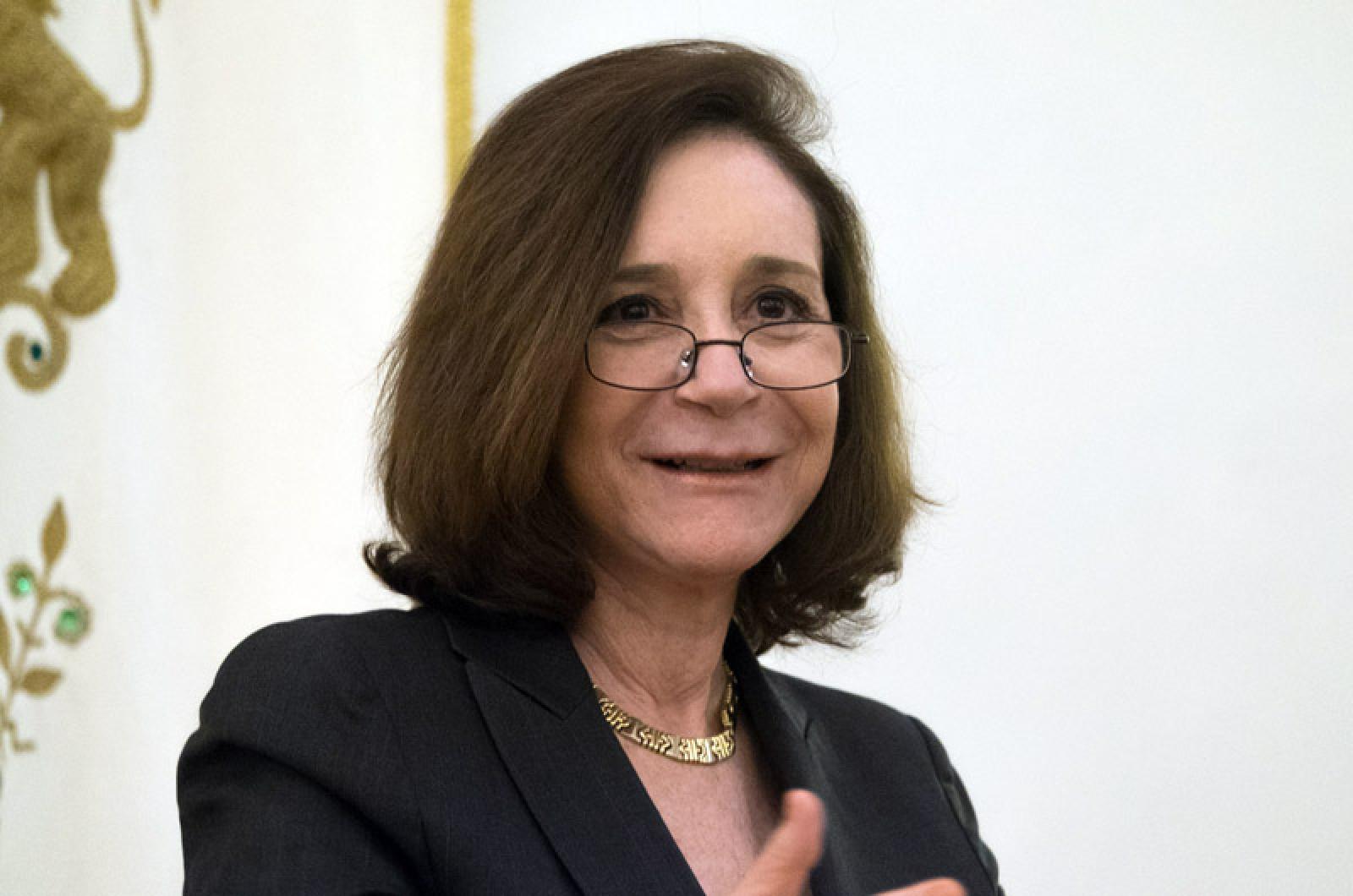In 1962, Rachel Carson warned that unregulated pesticides would devastate the environment, including bird populations, leading to a “silent spring.” Sherry Turkle, a sociologist at Massachusetts Institute of Technology, now warns of another silence: at the dinner table, in cars and in the workplace.
More than 200 people gathered at the Martha’s Vineyard Hebrew Center on Thursday to hear Ms. Turkle speak about topics in her forthcoming book, Reclaiming Conversation: The Power of Talk in a Digital Age. Gazing at the audience over her glasses, she described “a flight from conversation” in favor of texting and email, and a resulting decline in our capacity for face-to-face conversation.
“Face-to-face conversation is the most human and humanizing thing that we do,” she said. “But it is as though people are forgetting, in the most basic situations, this fundamental truth.”

Her previous book, Alone Together: Why We Expect More from Technology and Less from Each Other, aimed to diagnose the problems with digital communication. Reclaiming Conversation, to be released in October, provides some solutions while looking at how email and texting can sap our empathy.
“We have the fantasy that if we’re emailing and editing we can somehow get this communication right,” Ms. Turkle said. But throughout the talk she returned to the idea that face-to-face conversations are where we become fully present with each other, mistakes and all, and “where empathy and intimacy flourish.”
Email and texting allow us to control our time and our words, she said, but distract us from deeper connection.
Even the presence of a phone on a lunch date will limit conversation, she said, “because in the back of your mind you could be interrupted.” Research shows a 40 per cent decline in the markers for empathy among college students over the last 20 years, which researchers attribute to the presence of digital devices.
Audience members giggled when she said somewhat despairingly that the same researchers who compiled those data responded to falling empathy levels by developing empathy apps. One such app, for $2.99, promises to “improve your skills and awareness when it comes to speaking and listening with empathy.” A database “provides you with terms for feelings and needs,” according to the Apple app store.
“It’s easier to think about writing an app than having a conversation,” Ms. Turkle said.
In one study, she said, participants opted to self-administer mild shocks rather than sit alone with their thoughts for 15 minutes. She saw similar behavior at work in supermarket lines, where people impulsively reach for their phones. “We struggle to pay attention to ourselves and what suffers is our ability to pay attention to others,” she said.
But she also noted some signs of hope. In a special summer camp program, for example, after just five days without their phones and computers, kids began to relearn how to identify each other’s feelings. They did so simply by talking to each other.
Much of the presentation on Thursday focused on the need to reeducate young people about the values of solitude and face-to-face conversation.
“One of the great insights of psychoanalysis is that if we are unable to be alone we will be more lonely,” Ms. Turkle said. “And if we don’t teach our children to be alone they will only know how to be lonely.”
“I feel young people are much more receptive now than they were five years ago,” she said after the talk, which was her first on the new book. “Somebody who is 18 now has parents who didn’t talk to them because the parents were on their phones,” she explained. “So they often talk about not wanting to raise their children that way.”
People under 30 were notably absent from the audience, but that may have been a reflection of the Vineyard itself, which is rapidly aging. In any case, people listened with rapt attention during the talk, and most of them lingered long afterward, enjoying treats and coffee on the lawn and continuing the conversation.
Among Ms. Turkle’s recommendations to avert catastrophe was to set aside “sacred spaces” at home, at work and even in the car, where digital devices are off-limits. She urged people to simply accept what decades of research has made clear.
“Our brains crave the fast and unpredictable — the quick hit of the new,” she said. “Doing more than one thing feels good.” But research shows that multi-tasking makes us less effective. “The new bandwagon is going to be uni-tasking,” Ms. Turkle said.
“If there is a lull in a conversation, just let it be,” she added. “It’s often in the moments when we stumble and hesitate and fall silent that we most reveal ourselves to each other. Digital communication has gotten us accustomed to the edited life. Consider that the unedited life is also worth living.”




Comments (1)
Comments
Comment policy »